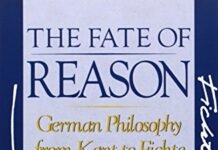
Ebook Info
- Published: 2006
- Number of pages: 262 pages
- Format: PDF
- File Size: 0.65 MB
- Authors: Frederick C. Beiser
Description
The Early Romantics met resistance from artists and academics alike in part because they defied the conventional wisdom that philosophy and the arts must be kept separate. Indeed, as the literary component of Romanticism has been studied and celebrated in recent years, its philosophical aspect has receded from view. This book, by one of the most respected scholars of the Romantic era, offers an explanation of Romanticism that not only restores but enhances understanding of the movement’s origins, development, aims, and accomplishments–and of its continuing relevance.Poetry is in fact the general ideal of the Romantics, Frederick Beiser tells us, but only if poetry is understood not just narrowly as poems but more broadly as things made by humans. Seen in this way, poetry becomes a revolutionary ideal that demanded–and still demands–that we transform not only literature and criticism but all the arts and sciences, that we break down the barriers between art and life, so that the world itself becomes “romanticized.” Romanticism, in the view Beiser opens to us, does not conform to the contemporary division of labor in our universities and colleges; it requires a multifaceted approach of just the sort outlined in this book.
User’s Reviews
Reviews from Amazon users which were colected at the time this book was published on the website:
⭐One can only give an exhaustive work like this five stars. But be warned, Professor Beiser’s perspective is decidedly non-literature in nature. That is, there is little or no analysis of the poetry or prose of EGR, instead, exhaustive investigation of EGR philosophical writings, especially of the Schlegels.One thing I personally despise is our modern tendency to see figures in the past as merely precursors to our great and lofty present-day mindset. This happens so often in literature scholarship that I rarely look at any 20th/21st century literarure scholarship anymore! If you’ve seen one Marxist lesbian clasping the Brontes to her ample bosom, you’ve seen them all! Beiser cannot be accused of this, so thoroughly objective are his treatments. But having said that, he does seem to spin the EGR as merely a curious branch of the greater Enlightenment. He carefully, meticulously argues that EGR is NOT an anti-rationalist backlash against the “Rationalismus ueber alles” Enlightenment, that the orderly, logical, rationalist approach is very much in evidence in their philosophical arguments, and that they never argue for outright rebellion against rational processes. I wouldn’t mind thrashing this out a bit more with him, as I can see many examples in, say, the writings of Novalis that clearly favor intuitive sensibility over brute-force logic and reductionism: “…when those who sing or kiss know more than the most learned scholars…and people will recognize that the true histories of the world lie in fairy tales and poems…then at a single secret word this whole wrongheaded existence will fly away.”…that’s pretty right-brained, IMHO.I’m not accusing Professor Beiser of one-sidedness, but I would suggest reading the actual literature also for a nice, rounded view. To my thinking, rationalism has been quite the bully down through the years; it does not play well with other philosophies. With symbolic “yes or no” logic, it seeks to bring order where the sheer complexity and sublimity might suggest a different approach. Obviously, learned noblemen like Novalis would not resort to irrationalism, but would strive to couch the “loose, far-flung webs” of his Poesie revolution in reasonable language, language with the empirical quality that others may read it and get the same gist reading after reading. But this cannot be seen as some odd subset of rationalism itself. Novalis is speaking of a “beyondness,” to my thinking.The modern 20th/21st century arts can be crudely described as the ironical if not absurdist reaction to the madness of the rationalist juggernaut, i.e., modernism is reationary. However, I get something far more subtle than reactionary from EGR. If we are to understand the universe through “Poesie” instead of “numbers and figures,” as Novalis says, there must be a very positive as well as intense effort made. When I read Thomas Carlyle’s account of Novalis and see his bright, innocent face in the one surviving painting of him, I know The Way Forward lies in him and his band of brothers, and not through any of the twisted, jaded “sick puppies” the 20th/21st century has produced. All in all, Beiser has done us a great service with this book in shoring up the philosophical underpinnings of EGR.
⭐I highly recommend this book to anyone interested, the author is obviously an expert in the field and offers a clear, in depth and surprisingly objective study of the mechanism behind the genesis of romanticism.
⭐I recomend this book for all the students who wants to get deeper on the topic. It’s a fresh view of the early romantics, like Novalis or Hölderlin.
⭐Beiser is one of the best authorities on German Philosophy. He explains difficult ideas with great clarity and turns what in some hands is turgid and tiring into an exciting story . Climb some of the peaks of Western thought with him.
Keywords
Free Download The Romantic Imperative: The Concept of Early German Romanticism in PDF format
The Romantic Imperative: The Concept of Early German Romanticism PDF Free Download
Download The Romantic Imperative: The Concept of Early German Romanticism 2006 PDF Free
The Romantic Imperative: The Concept of Early German Romanticism 2006 PDF Free Download
Download The Romantic Imperative: The Concept of Early German Romanticism PDF
Free Download Ebook The Romantic Imperative: The Concept of Early German Romanticism





